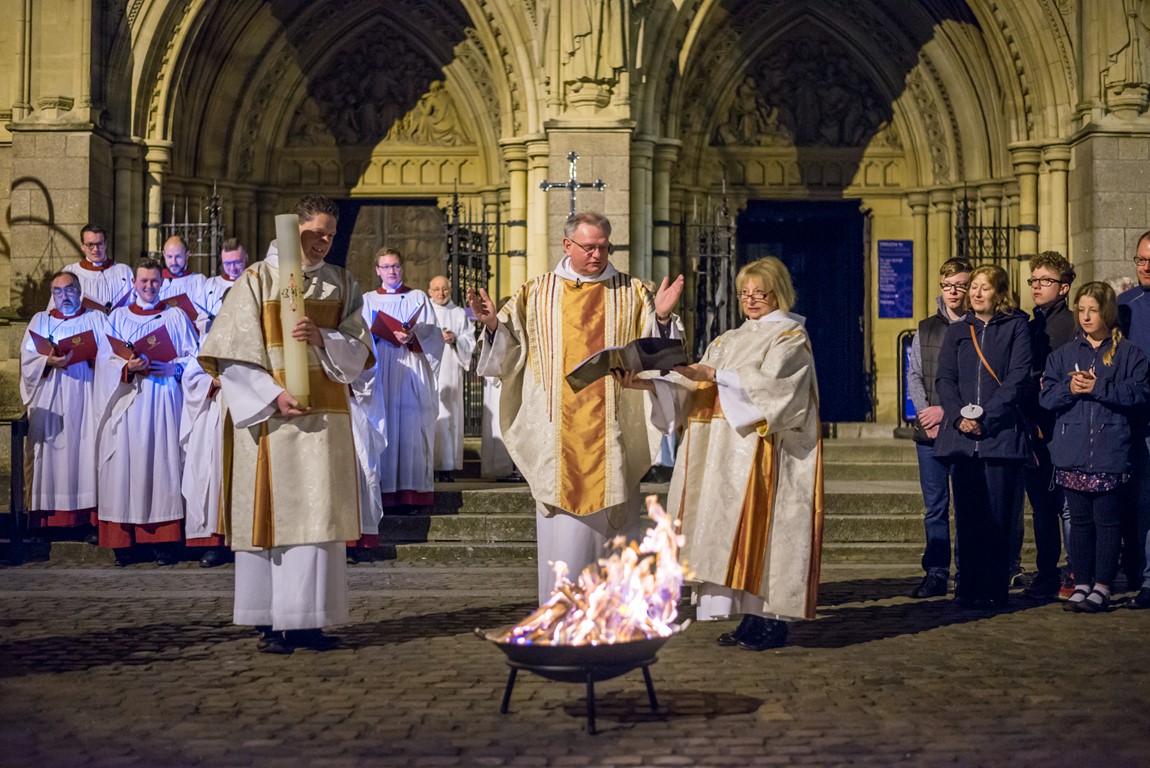A reflection on Easter

Christmas and Easter, the two major Christian festivals. If asked to say which was the most important of the two, most people would say Easter. I wouldn’t disagree with this. But I don’t think I am alone in saying that, for me, Easter is difficult, its mystery that little bit more impenetrable than Christmas, its meaning just a little bit more remote and difficult to grasp.
In some respects, Christmas has all the cards in its favour: the dark time of the year; the reassurance of all those lights; all those office parties; the growing expectation; the promise of gifts; the birth of the Christ-child into the world. What is not to like?
Easter has a different complexion: Jesus in the wilderness; Lent, an examination of our souls, not a time for gifts but for giving up; the commemoration of the abandonment, the torture and the death of Jesus. Easter Day, of course, overturns all this: Jesus rises from the dead, Alleluia! But this is where the real mystery comes in, because what does this actually mean? I am still alive in the here and now; what does a risen Jesus mean for me? Fullness of life? Yes, but I still have to cope with my limited life now. I can’t just slip into fullness of life as a hand slips into a glove.
Many Christians sincerely say they have a relationship with the Risen Lord, but when I am being completely honest with myself, I have to admit that I am not sure what this fully means either. I am loved, and I try to love in return, and I know this has something to do with God, Jesus and the Holy Spirit. But I can’t ever say that I fully understand how the connections are made. Jesus is not a baby in a stable, but a risen Lord, reigning in heaven. But the very fact he is not physically, tangibly here means there is a separation between us, a separation united by the bonds of love, yes, but it can seem that reach will always exceed grasp. (In the garden, on the first Easter Day, when Mary Magdalene sees Jesus, he tells her not to touch him – noli me tangere in Latin, an indication, perhaps, of his other-worldliness.)
And it is this which is the root of the, sometimes problematic, mystery of Easter. At Christmas, we are bringing Christ into the world. As a human being, Jesus shares our loves and our losses, our joys and our pains. We can be like him by loving the world as he loved the world: love in action. At Easter, we celebrate Jesus overcoming the limitations of the world and indicating the fullness of life and love that lies beyond the world. It is this that I sometimes find it difficult to grasp.
The theological terms we use for both these concepts are Incarnation and Resurrection. Of the two, Incarnation is probably the easier to hook onto. Don’t worry, I firmly believe that Jesus rose from the dead! I am not one of those people who think that the Resurrection was a trick of the mind or an act of corporate self-delusion amongst the disciples. But for most of us, I would say, it is easier to see Jesus physically among us in the warp and weft of creation, and not as a heavenly figure. Don’t get me wrong, the Risen Jesus calls me, lures me beyond the horizon of my experience to explore more about the nature of God’s love for the world. But because he is where he is, ever so slightly beyond the horizon of my experience, he will always continue to be a figure of fascinating mystery, a constant presence in my life, but a mystery nonetheless.
All are welcome at the vast array of services taking place in the cathedral this Easter. See our What's On Section to see full listings.

